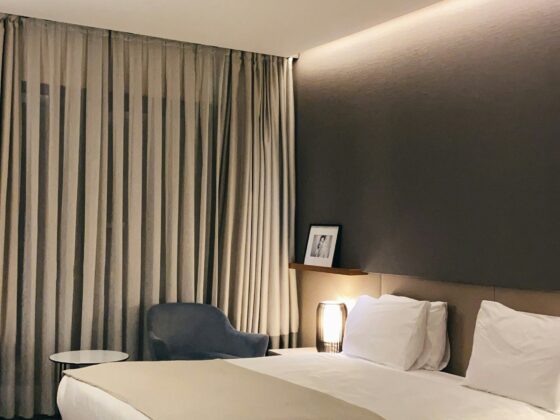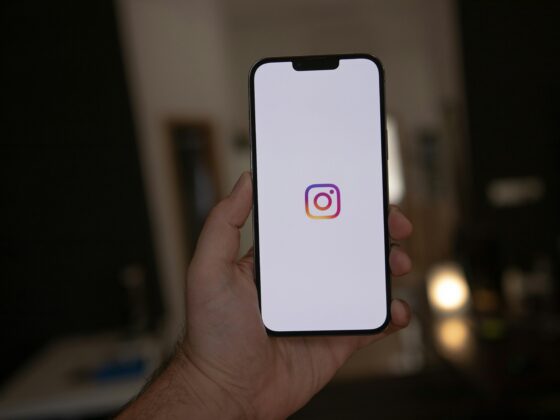Stuart: Chip Conley has been a long-time inspiration to many of us in the industry. I used to joke, you know, in TV and film, it’s six degrees of Kevin Bacon, right? Connect any actor in Hollywood through a movie Kevin Bacon’s been in. And I tell Chip this: in hospitality, it’s three degrees to Chip Conley. He’s just been incredible. And I love the quote that, you know, I think setting the stage on, you know, Modern Elder Academy, Chip frequently shares, and thanks to him, he shared this quote from David Viscott that said, “The purpose of life is to discover your gift. The work of life is to develop it. And the meaning of life is to give your gift away. And I feel like that is very apropos. I mean, when you think about, you know, I’m 52 and a half, and you think about your careers, whether you’re in your 30s, 40s, 50s, if you’re just getting started out, you’re probably on a track. But most of our life, from the time we were little, we were on a track with school. Maybe you go to college, maybe you started working, maybe you went back to a grad school, and then you’re working, and then suddenly, for decades, there’s just nothing, right? And you’re kind of on your own; maybe a big company has corporate training. And oftentimes, you know, we go through so many transitions on the personal side, relationships, maybe kids, moves. We’re not the same person at 30, 40, 50, 60 etc. There are people approaching retirement that quote-unquote went on retire, and at the same time, in our industry, we talk about Longevity and well-being, and it’s not how long can you live? I you know, I brought up a quote by the Rolling Stones Keith Richards who famously said in a documentary about who might surprise people, you know, everybody wants to you know, live a long life, but nobody wants to get old and And so having this high quality of life as long as you can with advances in medical technology Well that that’s a long amount of time decades In fact, you know when I said i’m 52 if you think about it from the age of maybe 22 30 years well You know, i’ve got another 20 years or so, you know, maybe maybe more, you know doing things that i’m active in So, if you imagine 20 or so strangers coming from all different backgrounds, there were startup people and executives like myself, there were people that were professional coaches, there were people that had backgrounds in meditation, yoga, or just in life, where they were coming together, and in five days, the amount of just incredible bonding, when the busyness gets stripped away, when you have time to listen, and I kind of feel like A lot of us know deep down, deep inside, who we were as kids. And as you get older, you start gravitating toward who you really are and what you really love, and we evolve as human beings. But we kind of come back to that natural essence of ourselves, wiser, hopefully, smarter, although some of us, you know, I can introduce you to other members of my family who might take exception. But, you know, joking aside, I think it’s, as you get older, you say, well, what do I want to do? be, not the way I want to do my job, but like what is it that gives me fulfillment? I’ve got a much closer, Chip talks about this u-shaped curve of happiness that’s been documented and I certainly experience that professionally and personally. A lot of it is being able at this stage to know what my gifts are, to have developed many of them, but I’m still a work in process in other respects, and to be able to give that back. And I thought it might be appropriate just to kind of wrap up, you know, this kind of part of it, and I’m happy to answer questions, you know, about the program, which is amazing. Pico Iyer is a famous author who wrote about travel. He was there with his wife, Hiroko. Some of you may know he wrote a famous book, The Artist’s Stillness, and another one, The Lady and the Monk, about the two of them meeting. He has these two quotes from his work that I wanted to bring to your listeners. The first one is that, “We travel initially to lose ourselves. and we travel next to find ourselves.” So we travel initially to lose ourselves and we travel next to find ourselves. And here’s the second quote I love and I’ll share why I really love this. “Traveling is, after all, the greatest adventure, but the adventure is always within.” And I had a nice amount of time to be able to talk, and Pico and I have corresponded by email, you know, after this notion of travel is us really expanding our consciousness, learning, finding things about the world that in different ways for different people give us a sense of growth of learning of fulfillment of seeing common humanity and really that’s you know We’re traveling physically through time and space. We’re experiencing new cultures or different areas, even in our own country And yet the journey is also within it’s a journey in our life conceptually in our brains of how we choose to internalize how we grow as people, and I think A lot of Modern Elder Academy, when we talk about that arc of your career and your personal life and so many changes, we don’t really have the time. We’re so busy doing. We are so busy doing. And in our DNA, it keeps driving. It’s kind of within us. It’s not a criticism. And yet it’s in the slowing down and the focus and appreciation on ourselves and that inner stepping back to say, well, okay, 10 years have gone by. Who am I? What do I wanna do? Am I really aligned to that? So I love it for my reasons, and I bet every one of the people that went there had their own reasons, and we all kind of come out of it, I think, in a very positive way, transformed with greater clarity around that kind of natural essence of who we are. So I hope you’re gonna get a chance to go yourself.
Josiah: I hope so too. Yeah. No, I appreciate you sharing that because before we started recording, we were talking about the makeup of the participants in this and all different ages, backgrounds, and careers. And what struck me was how everyone was united around some of the themes that you’re describing. That said, I think it’s pretty incredible to be working with the hospitality industry and thinking about, as hospitality providers, how can this business, which is a business, but it’s also a way of living, I feel. And so this feels especially important and exciting, I think, for all of our listeners to think about the opportunity. Many of us or all of us are traveling, so think about this as a traveler, but also as a hospitality provider. I feel like it’s all about creating these spaces, right, where people can start to step into the power and the opportunity of what travel offers us.
Stuart: And to really connect. I love that observation of yours because I think it’s really astute. There’s, in what you said and how you said it, almost this mirror of those of us working in hospitality, the people in hotels that span generations, and bellmen that have been there for 30 years, right? Somebody new that may be in marketing, doing social. So you have this multi-generational. You also have guests coming in who represent every kind of background. And it is about human connection. And that’s the thing, is sometimes I think in our lives, because we’re so busy, I call it GSD mode, and I don’t know if I can say this, but I call it getting shit done, where we’re so busy that we get stuff done and the day has flown by, and you wanna be present, and you can be in a flow state and really enjoying it, and some things drudgery and just get it done. But it’s that notion of these competing, the more you can kind of slow down and appreciate and be present in the moment, the way we’re talking now, connecting, looking into each other’s eyes, that human connection is something that I think we’ve lost entirely. Hospitality is a rare place where we still have it, but in society, everybody is always so busy that we don’t have time to even connect as human beings, and yet that’s what’s most fulfilling when you look at happiness research and everything else and gratifying.







